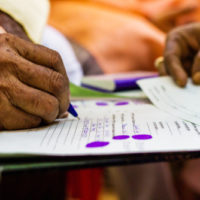Three Common Probate Problems

For some estates, probate will be a seamless process. If the estate is very small, then there might not even need to be probate. Instead, the estate can be wound up using disposition without administration. Other estates can take advantage of a “summary administration,” which makes the probate process quick and easy.
However, other administrations will be more complicated. At Millhorn Elder Law Planning Group, we’ve fielded frantic calls from personal representatives who have suddenly hit a snag in the probate process and don’t know what to do. Fortunately, thorny issues usually have a realistic resolution.
Problem #1: There is No Will
Some people never bother to draft a will or any other estate planning document. Unfortunately, you cannot avoid probate simply because there is no will. Instead, the probate court will open up a case and someone will need to be named a personal representative for the estate.
Florida has detailed laws for how assets pass when there is no will. This is called “intestate succession.” Nevertheless, the probate process is typically the same. After being named as the personal representative, this person must collect and safeguard assets, pay creditors, and possibly pay taxes. If you’ve been named personal representative and are confused about what to do, you should contact a probate attorney as soon as possible.
Problem #2: Someone Contests the Will
Will contests are rare, but they can throw a major wrench in probating any estate. After filing a will with the court, you must identify who could inherit from the deceased if there is no will. These people might be children who the deceased cut out of their will. Heirs and beneficiaries must receive notification that the will was filed, and they might challenge the will on the grounds that the deceased signed it only under fraud or duress.
A will challenge is incredibly complex, and you shouldn’t try to handle it alone. Instead, personal representatives should contact an experienced probate attorney who can investigate and collect evidence to show that the will is valid.
Problem #3: The Deceased Left Sizeable Debts
Before the personal representative can distribute assets to beneficiaries, he or she must pay off the debts owed by the estate. In some estates, the deceased might have only minor bills—cell phone charges or a couple hundred dollars on a credit card. In most cases, you can easily cover these bills with cash from the deceased’s bank accounts.
But what happens if the bills exceed the amount of cash? In this situation, the personal representative usually needs to sell property—property that someone was expecting to inherit.
This situation is fraught with difficulty, and many personal representatives are unsure of how to determine what to sell to cover the debts. A qualified probate attorney can identify assets to cover the bills and help you choose which ones to liquidate in a manner that is fair to all beneficiaries.
Call a Florida Probate Attorney Today
There is a reason many people dread probate. It can be complex, emotionally draining, and rife with disputes. To protect yourself as a personal representative, you should consult with a Florida probate attorney as soon as possible. The Millhorn Elder Law Planning Group offers free consultations to potential clients. Contact us today for help.
Resource:
floridabar.org/public/consumer/pamphlet026/#Untitled%20Section


